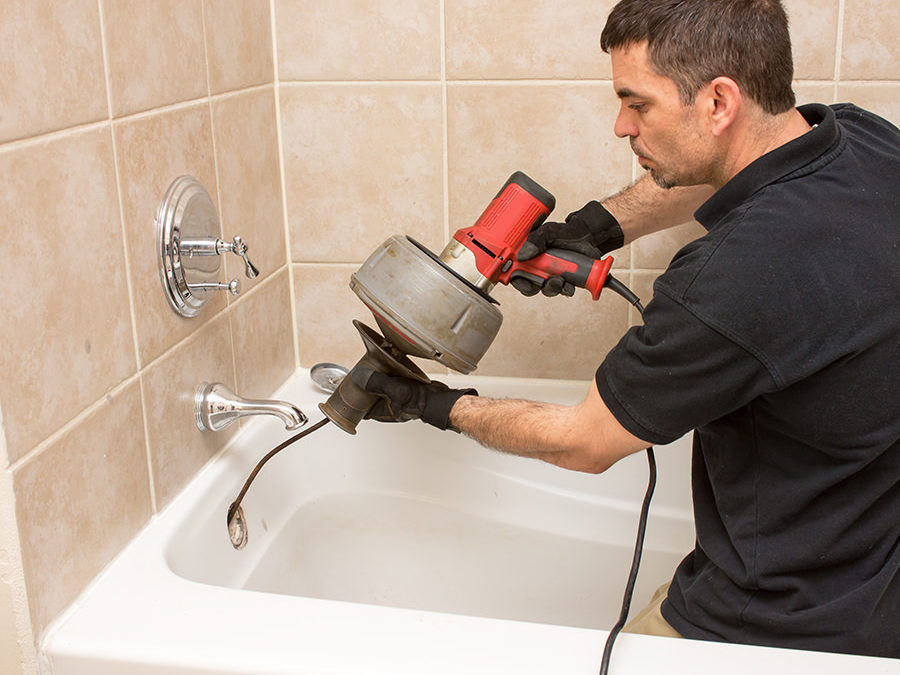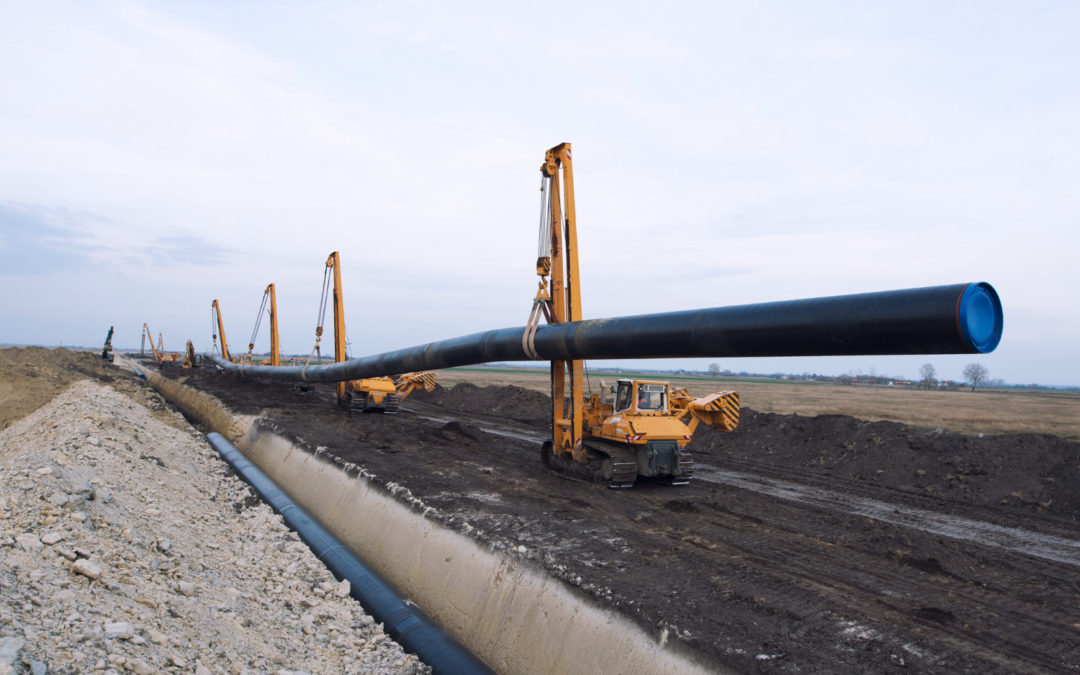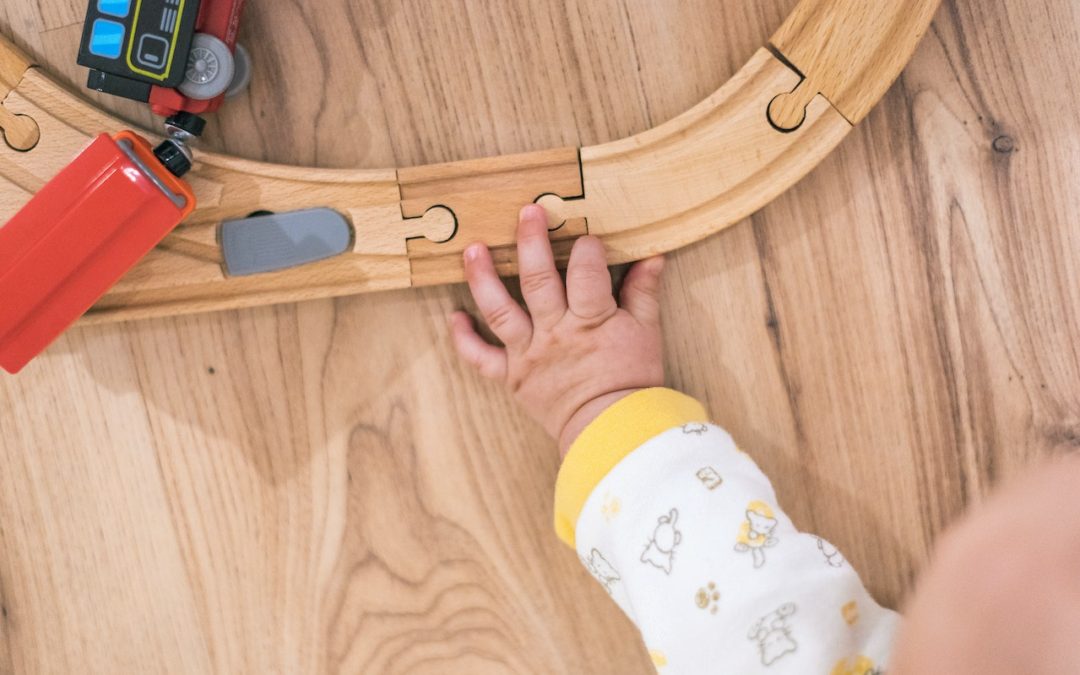
by Brandon | May 10, 2023 | News
Image source: www.qssupplies.co.uk
When faced with a clogged drain or tangled up sewer line, there are a lot of tools that plumbers have at their disposal to tackle the problem. One such tool is the snake machine, which comes in both “open reel” and “closed drum” varieties.
At its core, a snake machine is a length of flexible cable that can be guided through pipes to either break up blockages or extract debris. The cable is powered by a motor which spins the cable while the operator feeds it into the affected pipe.
But what’s the difference between an open reel and a closed drum machine? Let’s break it down.
Open reel snake machines
As the name suggests, an open reel machine is built around an open-faced reel which holds the cable. The open design makes it easy to clean and maintain, and the operator can often see how much cable is left on the reel with a quick glance.
These machines are typically lighter and easier to move around than closed drum machines, making them a better option for jobs that require a lot of mobility. Additionally, open reel machines can be operated by just one person, making them a more affordable option for smaller plumbing shops.
One downside of open reel machines is that the cable can sometimes get tangled inside the reel, requiring the operator to manually remove the snarls before proceeding with the task at hand. However, most modern open reel machines have built-in tangle prevention features that reduce the risk of snarls occurring in the first place.
Closed drum snake machines
Closed drum machines, on the other hand, feature a drum that completely encases the cable. The drum can be either horizontal or vertical, and it functions to both contain the cable while it’s being used and also protect it when it’s not in use.
Because of the drum’s fully enclosed design, closed drum machines are less prone to tangles or snarls than open reel machines. Additionally, closed drum machines are typically more powerful than their open reel counterparts, meaning that they can tackle tougher blockages and larger sewers.
One downside of closed drum machines is that they can be more difficult to clean than open reel machines. Because the drum fully encases the cable, it’s hard to tell when the cable is completely clean, and improperly maintained drums can collect debris and harbor bacteria.
Which one is right for your plumbing business?
Deciding between an open reel and a closed drum snake machine comes down to a few factors. If your plumbing business primarily tackles smaller jobs or if you’re on a tight budget, an open reel machine might be the better option. However, if your business focuses mainly on large sewers or tough blockages, a closed drum machine is the way to go.
Ultimately, both types of machines have their pros and cons, and the best choice depends on your specific plumbing needs. Whatever you choose, though, make sure that you invest in a reliable, high-quality machine that can stand up to the rigors of daily use.
Conclusion
No matter which type of snake machine you choose, you’ll be getting a powerful tool that can help you tackle even the toughest plumbing challenges. However, it’s important to remember that proper maintenance and use is key to getting the most out of your investment. Always consult the manufacturer’s instructions and best practices, and don’t be afraid to reach out to a fellow plumbing professional or mentor if you need guidance.
At Ace Plumbing Repair, our team of certified plumbers has years of experience using both open reel and closed drum snake machines to keep pipes flowing smoothly. If you’re in the market for plumbing services or need help with a clogged drain, give us a call at (844) 711-1590 or visit our website at aceplumbingrepair.com to learn more about how we can help.

by Brandon | May 10, 2023 | News
When it comes to plumbing services, it’s not always just about the pipes above ground. Often times, the real problems lie beneath our feet. That’s why it’s important for plumbing companies to be equipped with the knowledge and expertise to tackle underground plumbing issues, such as those involving NH couplings.
In New York City, having a well-maintained underground plumbing system is crucial for maintaining a clean and efficient water supply. A faulty or damaged NH coupling can wreak havoc on the entire system, leading to leaks, contamination, and water damage. It’s important for homeowners and business owners alike to understand the importance of NH couplings and how to properly maintain them.
What are NH couplings?
NH couplings, or National Hose Thread Couplings, are a type of fitting commonly used in underground plumbing systems. They consist of a threaded barrel and a hose-like connector, and are designed to connect water hoses, hydrants, and other fixtures to underground water mains. NH couplings are made of durable materials, such as brass or aluminum, and are designed to withstand high pressure and heavy use.
Why are NH couplings important?
NH couplings play a critical role in maintaining a clean and efficient water supply. They ensure that water is transported safely and effectively through the underground plumbing system, without the risk of leaks or contamination. A damaged or faulty NH coupling can compromise the entire system, leading to costly repairs and potential health hazards.
How to maintain NH couplings
Proper maintenance of NH couplings is essential for preventing damage and ensuring optimal performance. Here are some tips for maintaining NH couplings:
1. Regular inspections: NH couplings should be inspected periodically for signs of damage or leaks. Look for cracks, corrosion, or other visible defects. If any issues are found, the coupling should be repaired or replaced immediately.
2. Cleaning: Dirt and debris can accumulate on the surface of NH couplings, leading to potential blockages or damage. Regular cleaning with a soft brush or cloth can prevent this buildup and keep the coupling functioning properly.
3. Lubrication: NH couplings should be lubricated regularly to reduce friction and prevent wear and tear. A silicone or Teflon lubricant can be applied to the threads to ensure smooth operation.
The importance of professional NH coupling services
While regular maintenance is crucial for preventing NH coupling issues, sometimes problems can occur despite our best efforts. When this happens, it’s important to seek out professional plumbing services that specialize in underground plumbing repairs.
Professional plumbers have the expertise and tools to diagnose and repair NH coupling issues quickly and efficiently. They can also provide preventative solutions, such as backflow prevention devices, to minimize the risk of future issues.
Finding the right plumbing services for your NH coupling needs
When selecting a plumbing services company for your NH coupling needs, it’s important to choose a company with a proven track record of success. Look for a company that specializes in underground plumbing repairs, and has experience working with NH couplings specifically.
Ace Plumbing Repair is a leading plumbing services company serving the New York City area. With years of experience in underground plumbing repairs and NH coupling services, our team of experts has the knowledge and expertise to tackle any job, big or small.
In conclusion, NH couplings may not be the most glamorous fixtures in your plumbing system, but they play a critical role in maintaining a clean and efficient water supply. Proper maintenance and repair of NH couplings can prevent costly damage and ensure optimal performance. If you’re experiencing NH coupling issues, don’t hesitate to seek out professional plumbing services to get the job done right. And remember, when it comes to plumbing services in New York City, Ace Plumbing Repair is always here to help.

by Brandon | May 10, 2023 | News
Your home’s flooring is not only an important part of its aesthetics but also its functionality. It endures immense wear and tear every day, which makes it prone to damage and wear and tear. This is why it is essential to maintain your flooring regularly.
Different flooring types have different maintenance requirements. In this blog, we will provide expert tips for maintaining different flooring types to keep them in top condition.
1. Hardwood Flooring
Hardwood flooring is an attractive and durable option that adds value to your home. However, it requires proper maintenance to keep it looking good for years to come.
– Avoid high heels, cleats, and shoes with sharp objects to prevent scratches on the floor.
– Vacuum or sweep the floor regularly to remove dirt, debris, and pet hair.
– Clean spills immediately with a dry or slightly damp cloth to prevent staining or damage to the floor.
– Use a wood cleaner recommended by the flooring manufacturer to remove stubborn stains.
2. Tile Flooring
Tile flooring is a popular option for high-traffic areas like kitchens and bathrooms. It is durable and easy to clean, making it an ideal choice for homes with kids and pets.
– Sweep or vacuum the floor regularly to remove dirt and debris.
– Use a damp mop and a mild detergent to clean the floor weekly.
– Avoid using abrasive cleaners that can scratch the tiles.
– Re-grout and seal the tiles every few years to prevent water damage.
3. Vinyl Flooring
Vinyl flooring is an affordable and practical option for homes with heavy traffic. It is durable, waterproof, and easy to clean.
– Sweep or vacuum the floor regularly to remove dirt and debris.
– Damp mop the floor with a mild detergent and water to remove stains.
– Avoid using abrasive cleaners or scrubbers that can damage the vinyl.
– Use a doormat to prevent dirt and debris from entering the home.
4. Carpet Flooring
Carpet flooring is soft, warm, and comfortable. It adds comfort and style to any room, but it requires regular maintenance to maintain its beauty.
– Vacuum the carpet regularly to remove dirt and debris.
– Use a stain remover to remove stains immediately.
– Use a professional cleaner every few years to remove deep-seated dirt and stains.
– Use a doormat to prevent dirt and debris from entering the home.
5. Laminate Flooring
Laminate flooring is a popular option that resembles hardwood flooring but is less costly. It is easy to install and maintain, making it a popular choice among homeowners.
– Sweep or vacuum the floor daily to remove dirt and debris.
– Use a damp mop and a mild detergent to clean the floor weekly.
– Avoid using abrasive cleaners or scrubbers that can damage the laminate.
– Clean up spills immediately to prevent staining or damage to the floor.
Conclusion
Maintaining your home’s flooring is an essential part of homeownership. Different flooring types require different maintenance methods to keep them in top condition. Following the tips mentioned above will help you keep your flooring looking good for years to come.
To ensure the longevity of your home’s plumbing system, it’s recommended to have it regularly maintained and inspected by expert plumbing professionals. If you have any concerns about your plumbing system or require plumbing services, give our experts at Ace Plumbing Repair a call at (844) 711-1590 or visit our website at aceplumbingrepair.com.

by Brandon | May 10, 2023 | News
As a first-time homeowner, you’re undoubtedly excited about moving into your new place and beginning life in your new home. However, there are some things about moving into a new home that you might not be prepared for. In this post, we’re going to look at five things that no one tells you about moving into your first home.
1. Plumbing Issues
Plumbing issues can be a common problem for new homeowners. Before you move in, it’s a good idea to perform a thorough inspection of your new home’s plumbing system. Check for leaks, clogs, and any other potential issues that could cause problems down the line. If you do find any problems, make sure to address them before moving in.
Some common plumbing issues include clogged toilets and drains, leaky faucets and pipes, and issues with the hot water heater. If your new home has a septic system, make sure to have it inspected by a professional to ensure it’s in good working condition.
2. Electrical Problems
Electrical issues can be another common problem for new homeowners. Make sure you have a licensed electrician inspect your new home’s electrical system before moving in. They will check for any potential hazards, such as faulty wiring or improperly installed electrical fixtures.
Issues with the electrical system can cause power outages, flickering lights, and even fire hazards. It’s important to address any potential electrical problems before they become a safety hazard.
3. Pest Control
Pests can be a real problem for new homeowners. Before moving in, have a pest control professional inspect your new home for any potential pest problems. Common pests include rodents, termites, ants, and bed bugs. If you do find any pests, make sure to address the issue promptly to prevent an infestation.
Once you’ve moved into your new home, make sure to take steps to prevent pests from entering. This can include sealing cracks and crevices, keeping your home clean and free of food debris, and using pest control products as needed.
4. Home Security
Home security is another important consideration for new homeowners. Before moving in, make sure to change all of the locks on your new home’s doors. You never know who might have a copy of the keys, and changing the locks can help ensure your home is secure.
Consider investing in a home security system, such as an alarm or camera system. This can help deter potential burglars and keep your home and family safe.
5. Moving Costs
Moving into a new home can be expensive, and there are often hidden costs that you might not be prepared for. You’ll need to budget for things like moving trucks, packing materials, and professional movers. You might also need to pay for utility deposits and new appliances.
To keep costs under control, make sure to plan ahead and budget for all potential expenses. Consider using a moving checklist to keep track of everything you need to do before and after moving day.
Conclusion
Moving into your first home can be an exciting and overwhelming experience. By being aware of the potential issues outlined in this post, you can help ensure a smooth and stress-free transition into your new home. Remember to always prioritize your home’s safety and security, and don’t hesitate to call in the professionals if you need assistance with addressing any potential issues.
And if you’re looking for a reliable plumbing service in your new area, be sure to check out Ace Plumbing Repair. Our team of dedicated professionals is here to help with all of your plumbing needs, from emergency repairs to routine maintenance. Give us a call today at (844) 711-1590 or visit aceplumbingrepair.com to learn more.

by Brandon | May 10, 2023 | News
As a potential homeowner, there are many factors to consider before choosing a plumbing or HVAC contracting business to work with for your home’s repairs and installations. For this reason, it is essential for contractors to provide proof of licensing and bonding to potential customers.
Enter Lisa Trymbiski, a licensed plumbing and HVAC contractor with over a decade of experience in the industry. Lisa’s commitment to ensuring top-notch services to customers has led her to emphasize the importance of licensing and bonding for plumbing and HVAC contracting businesses.
Licensing requirements for plumbing and HVAC contracting businesses vary by state. A plumbing contractor’s license grants the holder permission to work on plumbing systems and ensure that they comply with municipal codes and water regulations. Similarly, an HVAC contractor’s license allows the holder to install, repair and maintain heating, ventilation, and air conditioning systems.
In Arizona, for example, all plumbing and HVAC contractors must undergo a full background check, bond with the Registrar of Contractors for up to $7500, and provide proof of financial solvency. Additionally, they must have at least four years of experience working as a journeyman under a licensed contractor.
Proof of licensing is vital when choosing a plumbing or HVAC contractor. It assures the customer that they are working with a professional who is knowledgeable, experienced, and committed to their craft.
Bonding, on the other hand, protects the customer financially. A bond serves as a guarantee that the contractor will complete the job as promised. Bonding is also necessary in case contractors do not meet their contractual obligations. This provides customers with peace of mind and ensures that they are protected in worst-case scenarios.
If you’re looking for a plumbing or HVAC contractor, it is essential to ask for proof of licensing and bonding before proceeding with the job. You can confirm a contractor’s licensing status through state licensing boards or calling the local office of the Registrar of Contractors.
In addition to licensing and bonding, there are other considerations when choosing a plumbing or HVAC contractor. Here are some tips to keep in mind:
1. Look for online reviews.
Online reviews can be an excellent resource for assessing a contractor’s reputation and the quality of their work. Check out their Google Business profile or their Yelp page to read comments from previous customers.
2. Ask about their experience.
When shopping for a contractor, ask about their experience in the industry. How many years have they been in business? What types of services do they specialize in? Do they have experience working specifically with your make and model of plumbing or HVAC system?
3. Inquire about pricing.
Pricing is an important consideration when choosing a plumbing or HVAC contractor. Ask for a detailed estimate upfront. Be sure to inquire about all potential costs, including equipment, permits, and labor.
One issue on many homeowners’ minds is water conservation. With the ongoing drought in many parts of the country, homeowners are looking for ways to conserve water and reduce their environmental footprint.
One innovative solution is low-flow showerheads. Low-flow showerheads use less water than traditional showerheads while still providing sufficient pressure for a comfortable shower experience.
Another popular plumbing topic is the rise of smart technology. From smart thermostats to smart water heaters, homeowners are increasingly looking for ways to automate their homes and make them more efficient.
Smart water heaters, for example, can help homeowners save money on their energy bills by regulating temperature more efficiently than traditional water heaters. They can also provide helpful insights and alerts if there are leaks or other issues with your system.
Finally, with the ongoing pandemic, homeowners are more concerned than ever about indoor air quality. Indoor air quality can impact respiratory health, allergies, and overall quality of life.
One solution to this issue is UV-C light technology. UV-C light is a natural disinfectant that can help homeowners improve their indoor air quality and reduce the likelihood of illness. HVAC systems that incorporate UV-C light technology can improve airflow and help rid your home of harmful pollutants.
In conclusion, Lisa Trymbiski’s emphasis on the importance of licensing and bonding for plumbing and HVAC contracting businesses is a testament to her commitment to professional and high-quality services. As a homeowner, be sure to ask contractors for proof of licensing and bonding before proceeding with any job. Additionally, be sure to consider other factors such as online reviews, experience, and pricing.
When it comes to popular plumbing topics of 2022, homeowners can benefit from innovations such as low-flow showerheads, smart technology, and UV-C light technology in their HVAC systems. These solutions can save money, reduce environmental impact, and improve overall quality of life.





